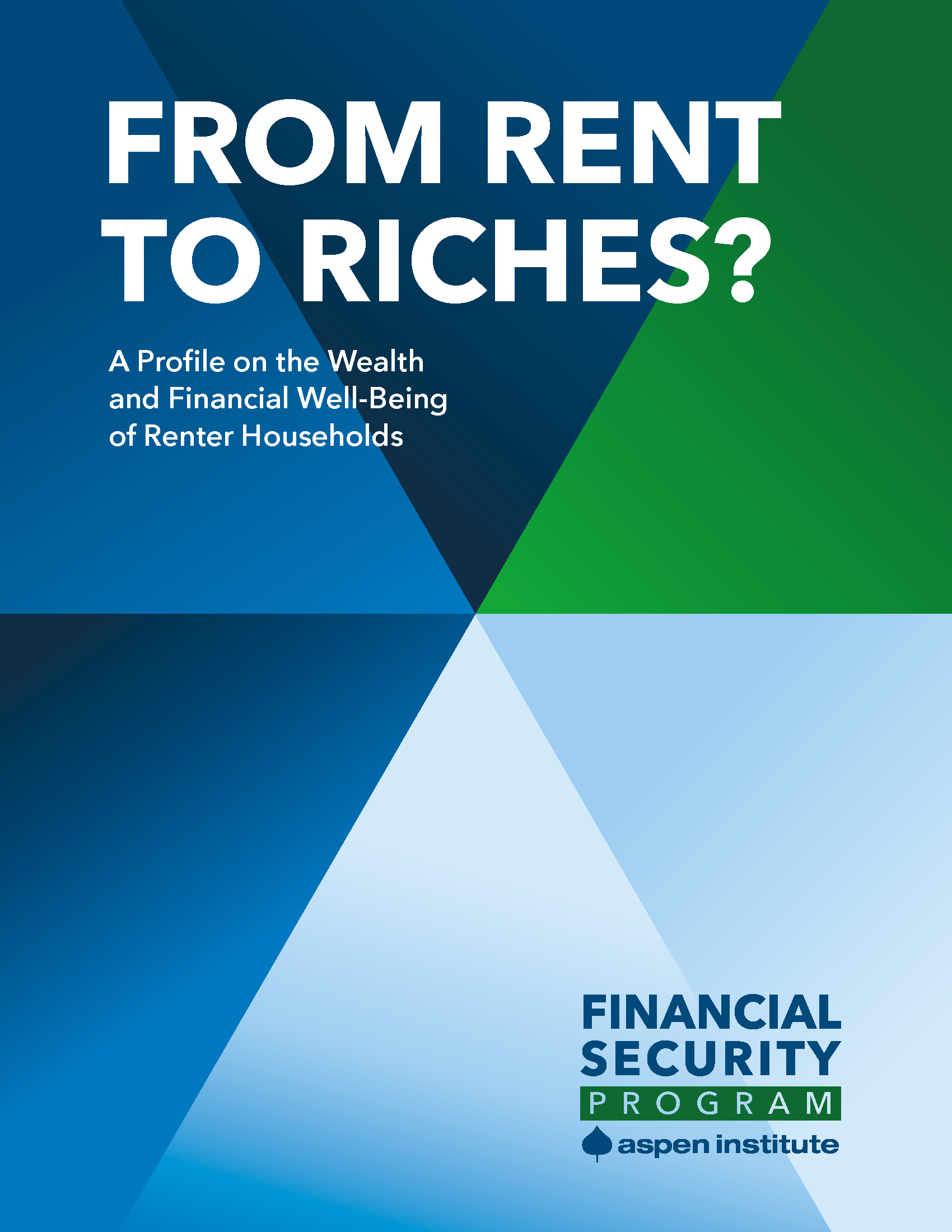At the Aspen EPIC Program, we have shined a light on the economic forces that severely impact the financial security of millions of Americans. Our first topic, income volatility, addresses households who don’t make the same amount of money each month. In fact, somewhere between 25% and 30% of households don’t have a stable monthly income and, in some cases, find themselves stuck turning to alternative financial products with high fees to make up for the months their income falls short. And the money spent in the alternative financial services industry is only growing. It grew by 5.9% from 2014 to 2015 and is now a $145 billion industry according to the Center for Financial Services Innovation.
This influx in income highlights the need and opportunity to create innovative products and services that foster financial stability and wealth creation for these families. When Aspen FSP polled experts in the field about the most promising ways the financial industry could help households manage their income volatility, multi-use products were the top choice of 58% of respondents.
Many organizations are turning to innovation to solve these problems, hoping to give struggling households access to safe, well-designed financial tools.
One such example is PREPARE + PROSPER, a not-for-profit that recently announced a three-part FAIR (Financial Access in Reach) financial solution to help financially underserved individuals build credit, save money, and avoid the high-cost fees typically found in predatory financial products and services. FAIR includes a checking account, a savings account, and a credit-builder loan. The promise of a “hybrid” product that bundles these different services into one is immense.
Prepare + Prosper serves the Twin Cities Metropolitan Area of Minneapolis and Saint Paul, where there are over 250,000 financially underserved households, an increase from the year before. Over the years, Prepare + Prosper has provided free tax services to thousands of individuals and has connected those individuals with savings accounts and prepaid cards through partnerships with banks and credit unions. Over the past 10 years, they’ve opened 3,000 savings accounts and 3,000 prepaid cards. It’s this experience and leadership in offering products and brokering partnerships with financial institutions that brought P+P to the cross-sector collaboration responsible for FAIR. That cross-sector collaboration includes members of the banking community, nonprofit sector, city and county government leaders, and Community Financial Resources (CFR) based out of San Francisco, who is helping to guide the initiative.
While many financial institutions tweak an existing product to try and reach customers, Prepare + Prosper has worked with Guaranty Bank to bundle a set of products, taking the solution “branchless” and into the community to be distributed in places where people live, work, and receive services. FAIR has no overdraft fees, no minimum balance, requires only a $25 deposit to open a savings account, and offers savers the chance to build credit through a credit-building loan.
Designing the product and minimizing fees was the first step for Prepare + Prosper. Moving forward, the nonprofit plans to focus on improving the technology and tools embedded in the product so that consumers can more easily engage with their account, work toward their goals, and build financial confidence. The technology and tools will center on human behavior and may take the shape of texts, apps, or social motivators to support continual savings and credit building. At the core of FAIR is the voice and experience of low-income consumers. So far they have listened to 150+ consumers and will continue to do so to inform FAIR.
Prepare + Prosper is just one example of an organization innovating to solve financial insecurity for American families.
Just last week, Aspen FSP and EPIC hosted the event, Income Volatility and Family Financial Insecurity: Thinking Beyond Traditional Government Solutions. At the event, an engaged panel of experts from multiple sectors spoke about the challenges and solutions to address income volatility. Unsurprisingly, a key theme was the critical need for multiple sectors to work together to create sufficient solutions. Learn more about the event, who spoke on the panel, and links to more information on how they are solving this critical issues at the event page.
These types of programs and products are just a few of the many that are looking to disrupt a system that keeps families financially vulnerable. Which set of products will breakthrough and provide financial stability at scale remains to be seen, but our hope at Aspen FSP is that by highlighting and supporting these efforts, we will inch closer to achieving that ultimate goal.
This post was originally posted on AspenEPIC.ORG

